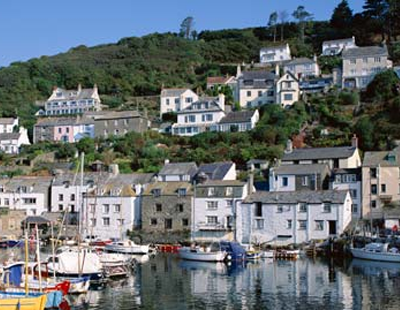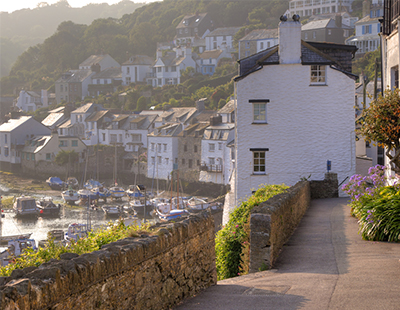Schofields says there are arguments for and against outsiders buying second homes, with a good case that holiday lets support local tourism and employment. However, some locals argue that second homes impact communities when owners only visit during the peak holiday seasons, leaving whole villages empty during the quieter months.
Additionally, there has been a rise in house prices due to outside investors, making it even more difficult for young locals wanting to get onto the housing ladder.
As a result, the government is targeting second homes with new planning rules and tax increases, which owners believe are unfair.
Schofields argues that holiday lets are renowned for being targeted and seen as having a negative impact on local areas, but the firm says there are clear differences between holiday lets and second homes.
It argues that second homes that are only used a couple of times a year are different from holiday lets that are rented out year-round, which create jobs and generate income for the community. But it says the government seems to be targeting second homes regardless of occupancy.
The company says the highest growth in holiday lets has been seen in Blaenau Gwent in South East Wales, with Denbighshire and Rhondda Cynon Taf also in the top 3. Other popular regions for staycations include Lancashire, Cornwall and Mid Wales.
The 10 quickest-growing regions, meanwhile, are East Anglia, the Yorkshire Dales and central areas of England.
“There are valid arguments both for and against second homes, however, the argument is controversial and not what some local residents want,” Phil Schofield from Schofields Insurance said.
“Local residents argue that they are affected by outsiders buying second homes, making it difficult for them to get on the property ladder, and that communities are also affected when holiday homes are bought and only used for a couple of weeks a year - contributing little the community.”
He added: “Since the pandemic, second home sales and property prices have soared due to people changing their lifestyle and buying second homes where they can work remotely. However, holiday lets bring opportunities by creating thousands of year-round jobs. Businesses thrive from tourism in their towns and travellers spending money. The UK tourism industry is expected to be worth more than £257 billion by 2025.”
What’s happening in Wales?
It’s not just England where there is a crackdown on holiday lets and second homes. In Wales, the Labour-led government has announced a controversial increase to the maximum level of council tax for second homes, as well as changes to the business rates criteria.
As a result, second homeowners face a potential 300% council tax rise, a 200% rise from the current maximum premium councils can currently charge of 100%.
From next year, the criteria for self-catering holiday lets in Wales qualifying for business rates rather than council tax will also change.
At present, properties available to let for a minimum of 140 days in any 12-month period, and actually let for at least 70 days, pay business rates rather than council tax. However, from April 2023, properties must be available to let for at least 252 days and actually let for at least 182 days in any 12-month period to qualify. Those who cannot meet these thresholds will be required to revert to paying council tax.
Unsurprisingly, campaigners for affordable housing in Wales have welcomed the plans to raise council tax dramatically for second homes, with a four times increase in council tax potentially imposed by the Welsh government on second homeowners across the country. This move, it’s argued, could ease housing limits and help locals from being priced out next to popular holiday property hotspots.
On the other hand, holiday let owners argue that the 182-day rule is unfair and unrealistic for most owners due to seasonality.
“Many locals in various seaside towns and villages feel crushed by holiday homeownership in their area. However, there’s also the debate that they’re improving their house valuations. There’s also the argument that locals could refuse to sell their properties to outsiders,” Schofield concluded.
Priced out?
House prices in the UK grew by £24,000 between January 2021 and January 2022. The UK average house price is currently around £274,000, with average house prices in England up by 9.4%, Wales by 13.9%, Scotland by 10.8% and Northern Ireland by 7.9%.
It has been estimated that the UK receives £50 billion in tourism from abroad. The majority of inbound visitor spending is accounted for by London at 53%, 35% by the rest of England, 8% by Scotland, and 2% by Wales.
Debate will continue to rage over the fine balance between much-needed revenue and the economic benefits of tourism and the negative impact of over-tourism, gentrification and locals being priced out of the place they call home.








.png)


.jpg)
.png)

.jpg)
.png)
.png)
.png)
.jpg)


%20(002).png)
.png)













Join the conversation
Jump to latest comment and add your reply
Government policy is one thing. There is also a market solution.
The newly introduced council tax hike might act as a reverse incentive for people to buy brand new second homes, but not so much for existing owners to use these homes more than they intend to. Sure, a government can even ban second home ownership to solve this problem, but this is not a solution for an open society that recognises the enormous benefits of an open global economy and the movement of people and capital under basic rules. But when policy only gives a partially optimal response, turn to the market which might be holding the answer.
This is why, at Flyway, we are committed to helping people and their cities make the best use of these vital assets: their capital and land use. We saw the problem, we strategised around it and we built the solution — co-ownership.
Under Flyway's co-ownership model, second homes rarely stay empty. Our owners rotate throughout the whole year, capturing the total value of ownership at the right cost. Moreover, Flyway second home owners will much more effectively support the hyper-local economies by revitalizing these neighborhoods with a constant flow of business and money.
This is what will make the economic cycle turn, fuel the local economy, and have significant long-term effects on the city. Having homes fully utilised by owners is one of the best things you can do, especially because in the case of co-ownership, buyers feel this place is their own, they feel they belong. They are not passersby or cold investors; they are owners of a second home they have picked because they love the place, they need it for a certain period, and it makes financial sense to them. And most importantly, they are people who keep coming back, as frequent travellers to the city, be it for work or leisure. Thus, they are owners much more likely to blend in with the local community, consume, get entertained, shop, care for the place and its people.
Localalised timeshare... how innovative of you. You obviously missed the 80's mate.
These places have traditionally been fishing and mining communities. Unfortunately, those industries are all but gone and it is tourism that's keeping these places alive. For anyone who wants to see what happens to a place when it's industry leaves and they don't have tourism to fall back on, I urge you to visit the pit villages of South Yorkshire, Cumbria and Northumberland.
But the locals can afford to live there right?
Well, no they can't. Because anyone decent has long left, and all that's left are people who either couldn't or wouldn't become home owners if their lives depended on it. This isn't a sleight, it's just how they are. They have no aspirations to become home owners no matter how 'affordable' the properties become.
Unfortunately, societies and their economies change. It's nice that people have history in a place. It's nice that the resident of a Welsh fishing village had 3 generations of his family who were fishermen or whatever. That doesn't mean that he can work as a local handyman and still live in the same house his parents did in the 60's when no-one but locals ever went there. That's just life.
Please login to comment